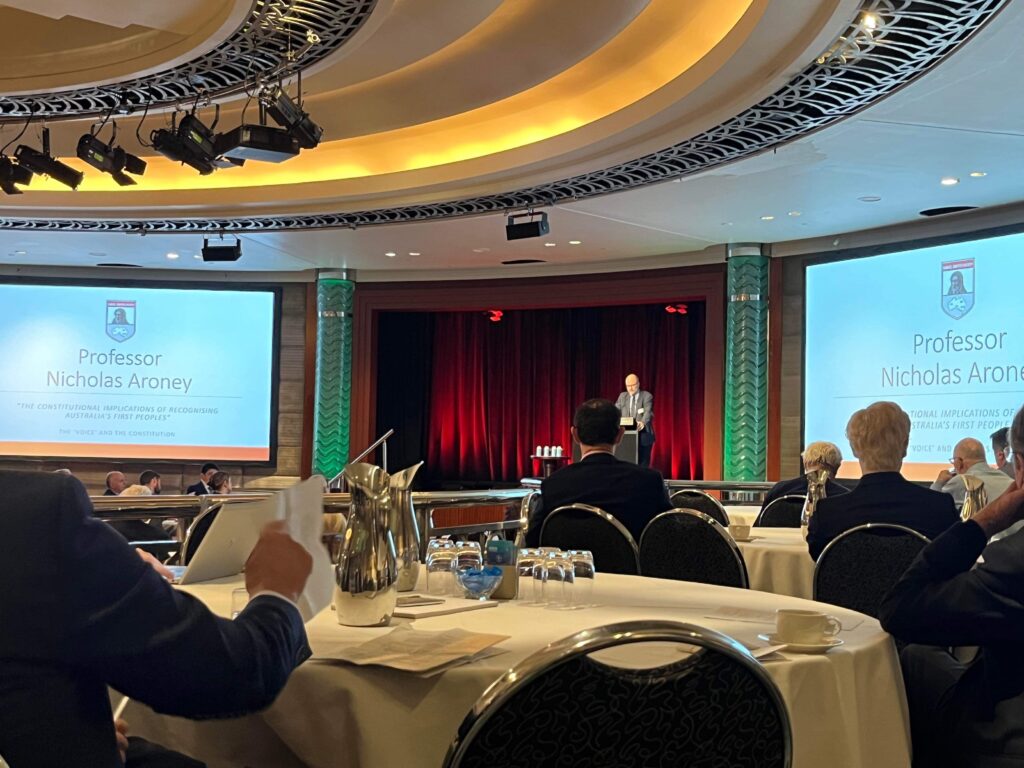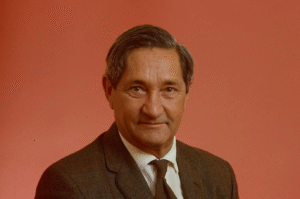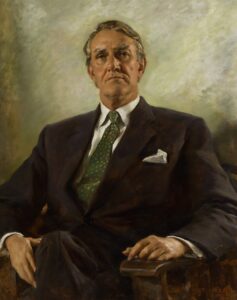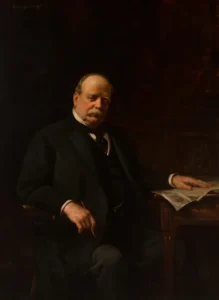The landscape of constitutional law within Australia is as diverse and dynamic as the nation itself. As a foundational pillar of the Australian legal system, constitutional law plays a pivotal role in shaping the principles, rights, and governance structures that underpin our democracy. Samuel Griffiths Society is a think tank that dedicates its efforts to the promotion of conservative and classical liberal principles within the context of constitutional law and governance. Through research, publications, and events, the society seeks to advance discussions on constitutionalism, individual freedoms, and limited government, often focusing on issues of national and legal significance in Australia. Few topics have garnered as a much attention and debate within the Australian Constitutional Law realm as the proposed Voice to Parliament referendum, and it was definitely the focus of the 2023 Samuel Griffith Society Conference. Other featured topics of the conference included the protection of private property rights, with the compulsory acquisition of the Calvary hospital, a historians truth telling about the esteemed Samuel Griffith and commentary on past referendums. The conference was certainly an experience that I had never encountered before and opened my eyes to another side of the world that I was unaware was so alive and active.
Father Tony Percy presented a paper on the “The Calvary Hospital Takeover: Unjust compulsory acquisitions”. Which was an interesting case study on the contentious acquisition of Calvary Public Hospital by the Australian Capital Territory (ACT) government. He spoke on how the government’s decision to compulsorily acquire the hospital is met with significant controversy and legal challenges, as is raising concerns about property rights, healthcare management, and the broader implications for public and private healthcare providers in the region. Further presenting the debate about the balance between public interest, government intervention, and the rights of private healthcare institutions within the Australian healthcare system. Father Tony presented his view in a very controversial manner and used interesting analogies to support his argument which were reflective of his own conservative catholic beliefs, which in my opinion weakened his argument. However, after the conference I conducted my own research after the conference to ascertain my own beliefs, and realistically a compulsory acquisition of private property from the government is concerning and there is definitely an existing complex framework of legal and ethical aspects surrounding the acquisition of the hospital. It peaked my interest upon arriving in Canberra after this conference, and seeing a flier on my friend’s kitchen table from a Labor member of her area detailing how the ACT Labor party endeavours to provide the best health for its citizens, indirectly referring to the acquisition of the hospital. Which made me realise regardless of my own views or opinions, both sides of the debate are heavily reliant on emotional appeal, framing, simplification and appeal to values and identity to gain their target audiences support and ultimately vote. Which whilst I understand the logic and efficiency of this technique, it also completely quells my interest in politics as the more I learn the more I just see it as a game of manipulation.
I think the most engaging speech was delivered by The Honourable John Anderson AC. With his extensive background in Australian politics, including serving as the Deputy Prime Minister, his insights into the intricacies of governance and policy-making are invaluable. He was a captivating presenter, letting his passion for the subjects he presented shine through in his delivery. During his speech he was momentarily distracted by his name being projected onto the screen in notably large font, he then weaved in a personal anecdote about another time that had happened into his speech and tied it in with his pre-existing topic, which amazed me as it is something I would never be able to achieve. John Anderson AC speech was a testament to his exceptional presentation skills and his ability to weave a story out of anything, whilst everything in his speech I might not have agreed with his ability and finesse for the presentation was undeniable.
The Samuel Griffith Society conference, disappointingly, appeared to be heavily skewed towards the No campaign in the Voice to Parliament referendum, offering a somewhat one-sided perspective on this crucial constitutional issue. As an advocate for open and inclusive debates, I found the absence of a robust and balanced discussion on the topic quite suffocating and draining. Healthy debate is the lifeblood of any democracy, fostering a richer understanding of complex issues and encouraging the exploration of diverse viewpoints and most importantly can be very productive. The limited scope of the conference left me longing for a more comprehensive and equitable examination of the Voice to Parliament proposal, which, in its current form, failed to capture the essential essence of democratic discourse and intellectual exchange. However, I did enjoy those speeches that based their arguments on constitutional sections and seemed to draw in strong evidence from the constitution, not ambiguous analogies and fear-mongered points of view. Paul Jeffreys’ speech on Constitutional Limitations on an Australian Referendum Question, was very informative on how a referendum question must be constructive under the constitutional guidelines and how the voice question might not meet these requirements due to the wording. Additionally, Professor Scott Stephenson provided a well-researched view on how the Voice to Parliament could be deemed constitutionally conservative and therefore should be advocated for from a liberalist perspective.
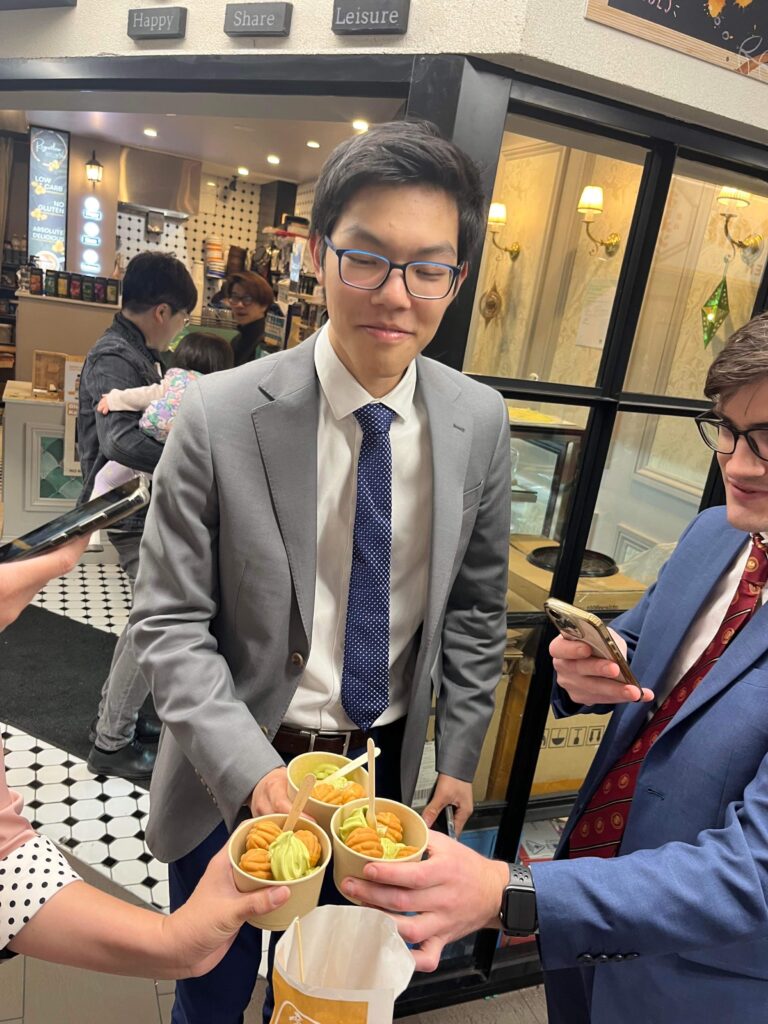
Mannkal Scholars Nicholas Tan and Rhys Budge enjoying Melbourne
The conference’s attitudes and approach seems conflicted, as throughout the dinners the conference facilitators seemed very proud of the fact that 30% of attendees were under 30. Logically they need younger attendees present in order to carry on the legacy of the stakeholders of the society, yet they realistically fail to appeal to what I view as the values of the younger generations. My generation has been brought up on change and diversity, it is all we know. From the rapid progression and development of technology and the internet leading us to have access to practically everything in the world, to the whole school system changing for multiple years during fundamental times in formative education career due to COVID-19 restrictions, all we know is change, and subsequently, we are very adept at adapting to it. I personally value change, development, and growth, and realistically I think that you need diversity and respect to achieve a result that is beneficial for all. Whilst I cannot speak for my entire generation, I think it is likely they view the same thing. Hence the conference clearly valuing the presence of young people, whilst failing to cater to our values is a problem that seems to fall on deaf ears, which is a definite critique I would offer.
Participating in debates and discussions within private conversations surrounding the Samuel Griffith Society conference was valuable to me. These exchanges allowed for a deeper exploration of the nuanced aspects of the topics discussed during the conference. Through these conversations, I had the opportunity to challenge my own viewpoints, and gain valuable insights from individuals with varying experiences and expertise. While the conference itself may have presented limitations in its coverage and balance, the meaningful dialogues that took place on the sidelines were undeniably enriching. These interactions not only expanded my understanding of the issues at hand but also reinforced the importance of respectful and open discourse in shaping well-informed opinions.
In conclusion, I look forward to the future iterations of the Samuel Griffith Society conference with optimism and hope for a more diverse and respectful discourse. It is my belief that embracing a broader range of perspectives and fostering an environment where all voices are heard will enhance the quality and relevance of the conference. By promoting respectful exchanges and inclusivity, we can create a platform that not only benefits attendees but also contributes to a deeper understanding of complex issues within the realm of constitutional law and governance. With a commitment to diversity and respect, I am confident that future conferences will offer even greater opportunities for learning, growth, and the advancement of meaningful dialogue in the pursuit of a more inclusive and equitable society.

